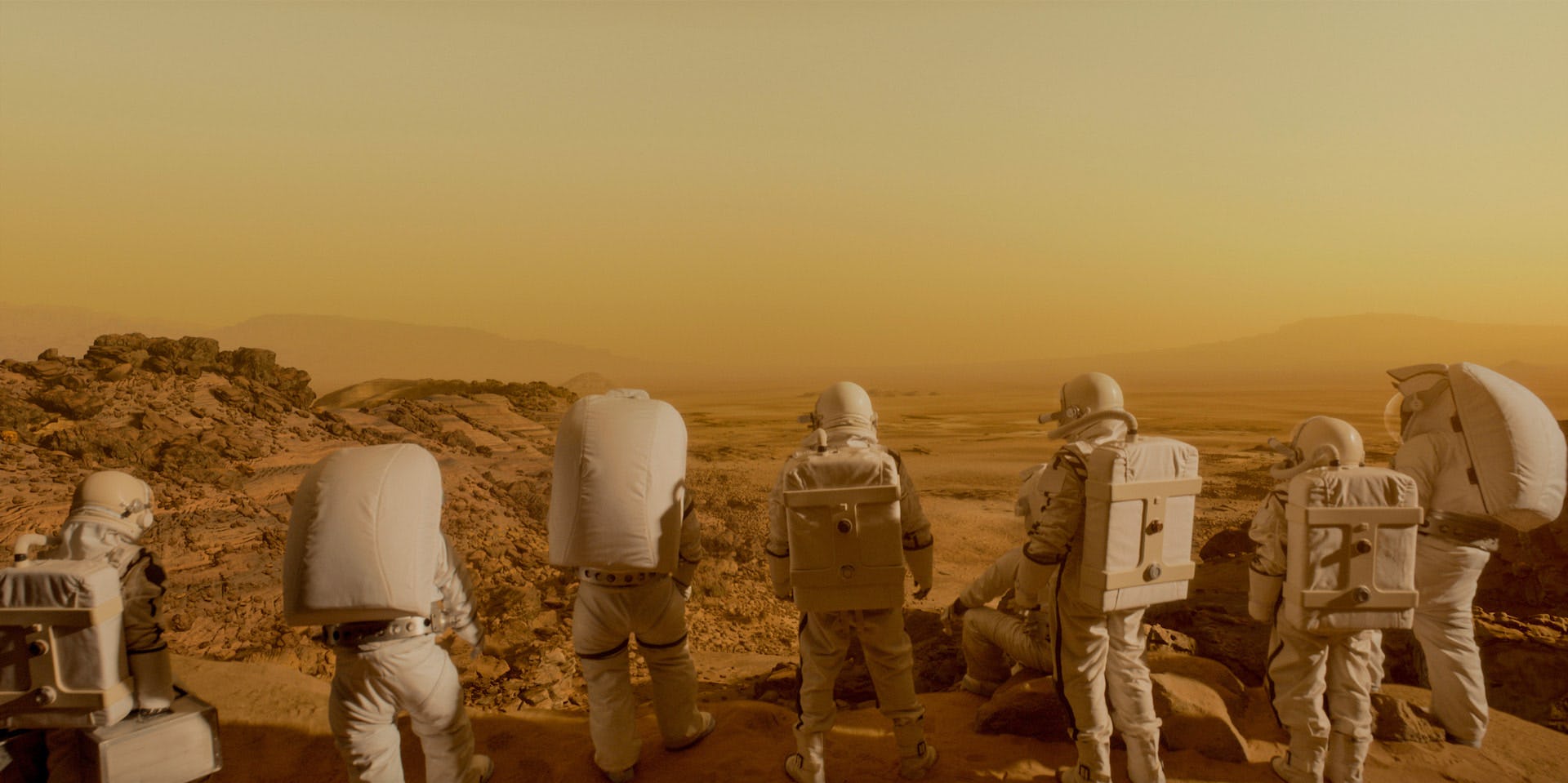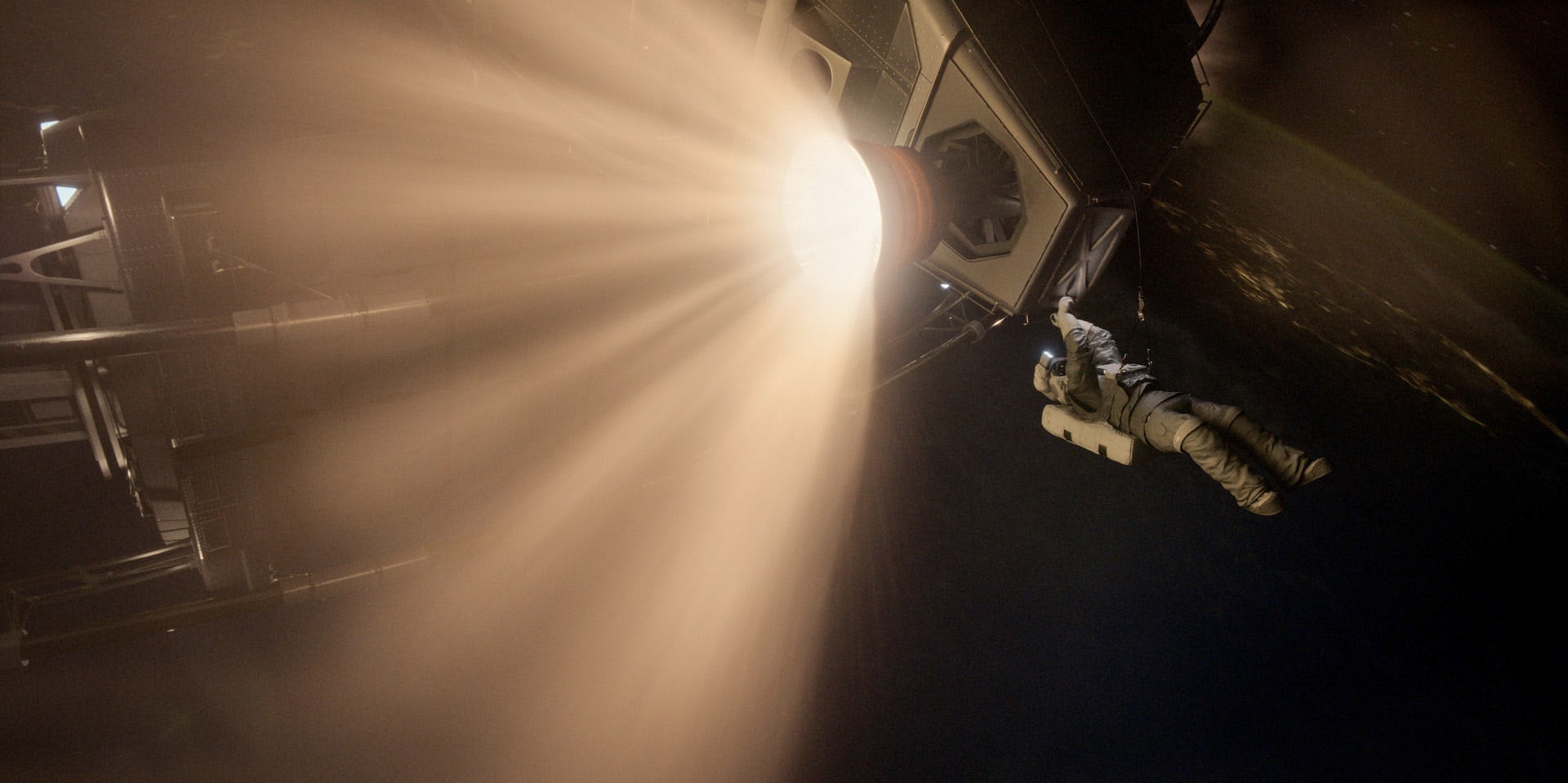
Sometimes, while watching For All Mankind Season 3, you forget that you’re watching a science fiction show. That’s because while most sci-fi is some sort of allegory for our own world, For All Mankind is actually just about the story it’s telling. Turns out, the best way to make science fiction gritty and gripping is just to make it as realistic as possible.
Here’s why you can’t miss Season 3, and why if you’ve slept on For All Mankind, it’s time to catch up. (This is a spoiler-free review.)
An epic scope — Although the series has done time jumps before, Season 3 is where you get a sense that you’re only really halfway through this huge story. At the end of Season 2, the creator of For All Mankind, the legendary Ronald D. Moore, told Inverse he has a “seven-year arc” planned for the series. Season 1 began in 1969, presenting an alternate timeline in which Russia beat the U.S. to the moon in the space race. By the end of that season, it was 1973 and NASA had established a moonbase. In Season 2, we lept ahead to 1983, and the show explored the transformed Earth, and Moon, in which weapons — both nuclear and conventional — almost turned the Moon upside down.
But now, the Moon is barely mentioned. For All Mankind Season 3 begins in the year 1992, and the name of the game is Mars. For the first time, the show is less interested in doing a sci-fi rumination about a prolonged Cold War. Instead, it seems to be planting the seeds for something much bigger.

The red planet — As teased in the Season 2 finale, the primary focus of For All Mankind Season 3 is the race to Mars. Two things about this development are fascinating. First, you’re constantly forced to remind yourself that the technology to get to Mars has basically existed for decades. And second, once people start landing on Mars, the series makes it as realistic as possible. Often painfully. For All Mankind Season 3 is so hardcore it makes the nail-biting survivalist tale of The Martian feel like a bedtime story. As sci-fi stories about Mars go — and there have been a lot — For All Mankind Season 3 stands apart because it’s a gripping human story above all else.
But it’s not like the show has to trade-off between doing cool sci-fi stuff and character work. Instead, the two are seamlessly integrated. If there’s anything that requires a slight suspension of disbelief here it’s simply that in this timeline, the most important people in the world, are all, somehow, linked to the world of spaceflight. But because For All Mankind has laid such convincing groundwork with the previous two seasons, the notion that a more robust space program would have utterly transformed politics and economics isn’t as hard of a pill to swallow. (That does mean you can’t really jump into Season 3 without having seen the first two seasons already.)

A sci-fi crossroads — If For All Mankind Season 3 has one weakness, it could be its growing and complex continuity. At this point, we’re well past the novelty of the butterfly effect which began in Season 1. In fact, the references to this season taking place in the 1990s are minimal. Other than the absence of the internet and smartphones, this season could, if you squint, take place in the present day. It even presents a kind of faux SpaceX called “Helios,” complete with a ‘90s version of Elon Musk, only very much, not Elon Musk.
As many cultural critics have pointed out, including, very recently, Chuck Klosterman, the ‘90s feel both very recent and very far away. And so, for the first time, For All Mankind’s intentional anachronisms don’t seem that jarring. The world of the ‘90s is both aesthetically and politically closer to the world we live in now than the ‘60s, ‘70s, or ‘80s. Even though the show is still a historical drama set in an alternate past, you can feel the narrative catching up with our actual present.

An alternate future — For All Mankind Season 3 is like a massive bridge. It may not leave the audience with the same emotional satisfaction as Season 2, but the show is clearly creating a new foundation from which to launch the second half of its story. How far will that story go? Well, if each season continues to jump ahead about ten years, by Season 5 the show will nearly have caught up to the present day, and by the final two years, will extend into the future. But, in the alternate 1990s of Season 3, the show has already managed to convince you of space tech existing in the past that is just now getting off the ground in the present. The challenge for the series will be to keep that going.
Will humans keep boldly going further into space? Most science fiction takes this question as a given. The power of For All Mankind is that it makes space both unreachable and attainable simultaneously. It’s a serious and gritty show, but through all of that darkness and real-world drama, there’s genuine excitement. Because if human beings can realistically survive Mars, maybe we can do anything. But that doesn't mean it’s going to be easy.
For All Mankind Season 3 debuts Friday, June 10 on on Apple TV+.







